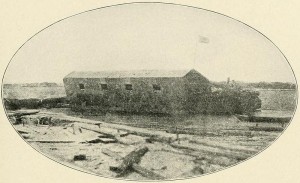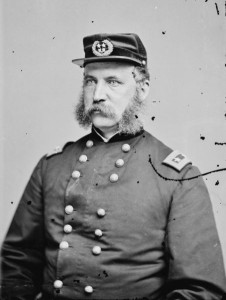From The New-York Times February 23, 1861:
CHARLESTON, Monday, Feb. 18, 1861. …
During my two weeks’ absence I find there has been a change, both in the hopes and fears of the community. The formation of the Provisional Government at Montgomery relieved the Republic of the necessity of attacking Fort Sumter immediately upon Col. HAYNE’s return, while it has also enabled them to perfect their preparations for that which they all say will be done, — preparations, let me repeat, which are now formidable in the extreme. Their fears spring not from any personal terror, as the North know full well, but they think that the speech of the Northern President elect, at the capital of Indiana, is an ominous threat of what he will do when he seizes the Presidential reins. Following my intention of speaking truthfully as I hear, I am forced to say that the very manner of Mr. LINCOLN’s utterance rendered his words all the more obnoxious. Not daring, as they observe, “to distinctly declare that he would, under all circumstances, attempt to coerce, he sneaks out the idea under the unmanly cover of pretending to assume if the South did so and so, wouldn’t we be authorized to reclaim our own, &c.” That speech has fired up even the most lukewarm here, and the steel now is longing to leap from every scabbard. The Mercury’s correspondent at Washington, fired up at the speech, characterizes the choice of so many Northern men as “the insolent and brutal blackguard, eminently fit to be the head of a vulgar tyranny.” May I suggest that a man who would use such extreme brutality of language is a fit subject to be impaled on his own foul pen?
I have just returned from a visit to the famous floating-battery or raft, which is now entirely completed, and will be launched at the first favorable tide. There have been so many crude ideas concerning this novel weapon, and such ridiculous ideas concerning its real object, that a genuine and positive statement of its powers and purposes will, of course, be interesting. It may be relied upon, as I had it direct from a leading person employed in the construction of the new military leviathan.
Your readers will please imagine a huge box, forty-six by eighty feet, pierced for a sufficient number of rifled cannon, and with a roof covered with three thick plates of the best sheet iron, and rendered perfectly bomb-proof. It will draw with the armament and the complement of men — three hundred — only four feet. At a judicious time or turn of the tide, it will be floated down with the aid of two steam-tugs, to a point on the land or inner side of Fort Sumter, distant just six hundred yards. At such a proximity, Major ANDERSON’s guns, they say, cannot be deflected, and thus secure from his terrible columbiads, &c., they will pepper away at the weak part facing Morris and James Island, until they effect an entrance, or, militarily speaking, make a breach. Thus, having him at advantage, with the Cummins’ Point batteries, now immensely strong, shelling him; with Moultrie’s fearful cannonading also, now a terrible customer; with James Island, too, pouring in the iron rain, they think the little band at Sumter will be very like the poor fly that became completely entangled in the meshes of the spider. It is my deliberate impression that, with the extraordinary activity that has been displayed since I left my labors, that Major ANDERSON will be annihilated utterly when they do commence. …
You can read the entire article at the New York Times Archive. The correspondent sure is opinionated. He has some derogatory things to say about Floridians for some reason.
Baptists and the American Civil War quotes the Charleston Mercury’s take on Lincoln’s Indianapolis speech.
Captain John G. Foster, an engineer in the U.S. Army, thought the Floating Battery could “… be destroyed by our fire before it has time to do much damage…”



